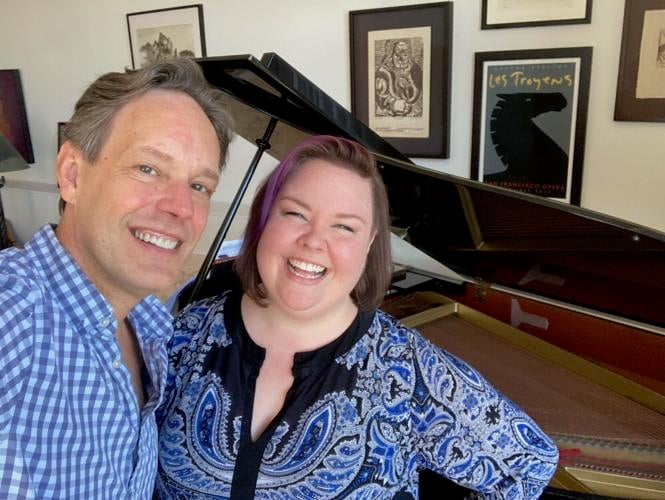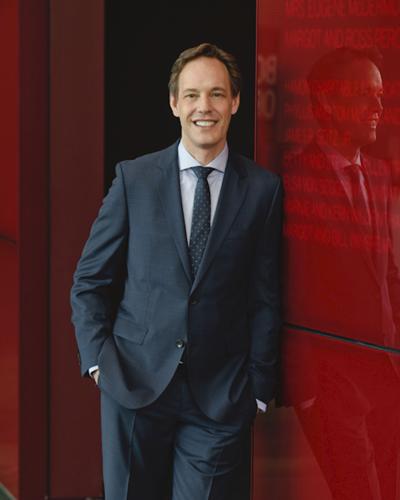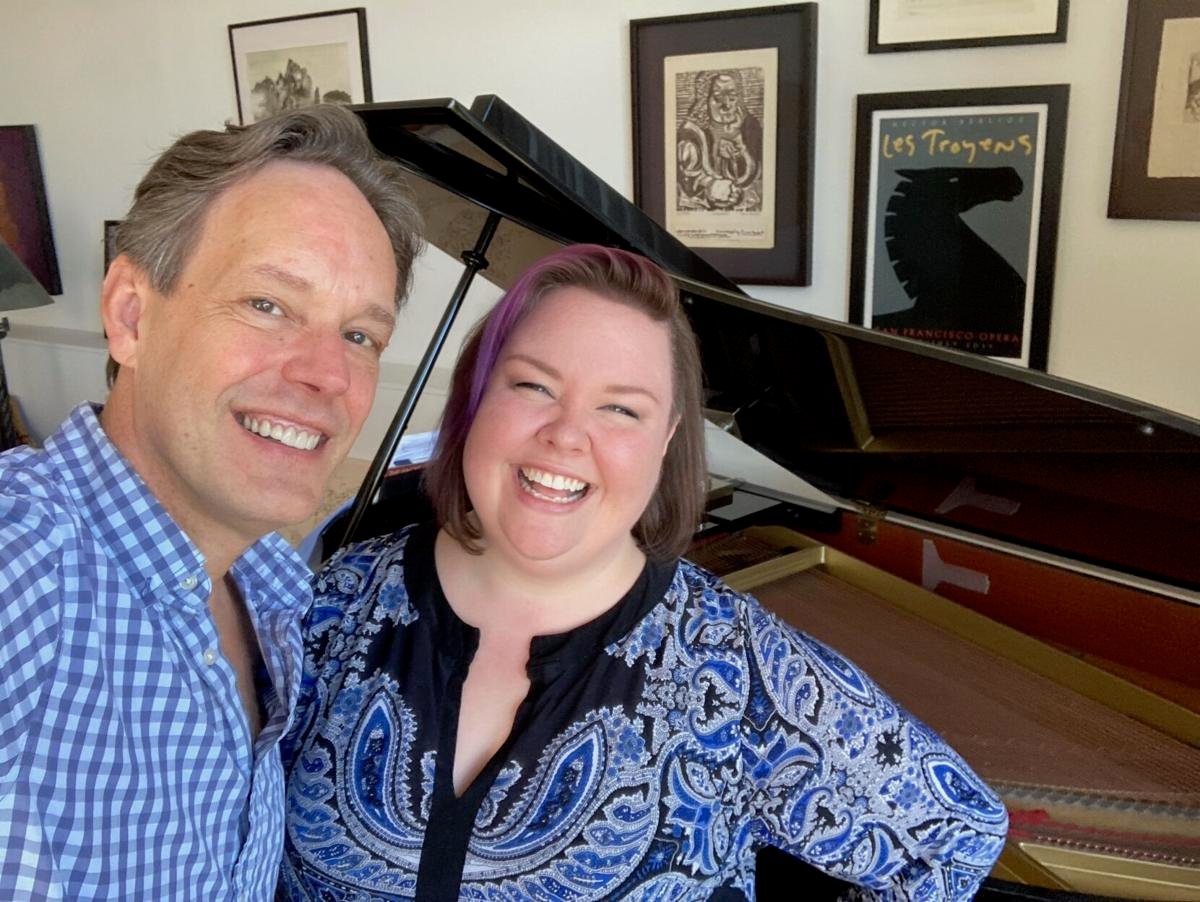When the Tucson Desert Song Festival commissioned one of America’s top opera composers to write a song cycle for the 2021 festival, they left it up to him to decide the topic.
Jake Heggie had a singer in mind — the critically-acclaimed mezzo-soprano Jamie Barton — and an idea: Reflect on the world we found ourselves in courtesy the global COVID-19 pandemic.
On Monday, May 10, he will accompany Barton on piano for the world premiere of “What I Miss the Most,” a song cycle using the text of reflections and poems from a few of his closest friends, an idea that he and Barton came up with in April 2020.
“It was a month into (the COVID-19 pandemic) lockdown and a lot of uncertainty and it was becoming clear that things weren’t reopening in the summer and it was becoming clear that it was going to be quite a while,” said Heggie, who launched his career in 2000 with the opera “Dead Man Walking,” based on Sister Helen Prejean’s true story of counseling a death row inmate. “And yet it was kind of a sweetly naive time in a way because even though there were deaths and cases were on the rise, we hadn’t had the political upheaval of the summer and the fall and the civil unrest and the horrible things that happened. It was people staying at home and reflecting.”
Between them, Heggie and Barton reached out to 30 friends including Prejean and asked them to reflect on what they were missing most from their pre-COVID lives. Some submitted mediations. A few people wrote poems.

Jake Heggie
Supreme Court Justice Ruth Bader Ginsburg sent Heggie “three, very sweet lines about missing music made by many in unison,” Heggie said.
“And that’s really where it was for her. She missed being in the theater,” he said. “She loved opera and music and the theater and so not being there was the hardest thing for her as it has been for a lot of us. Being in the room rather than being in the Zoom.”
Those three sweet lines by Ginsburg — who died Sept. 20 after the cancer she had been battling for years returned in July — are the cornerstone of “What I Miss the Most.”

Jamie Barton
Heggie and Barton narrowed down the couple dozen submissions to five. Opera great Joyce DiDonato, who was in “Dead Man Walking” and Heggie’s 2015 opera “Great Scott,” penned a poem.
“I didn’t know she wrote poetry. I only know her as a great, superstar mezzo-soprano,” Heggie said of DiDonato, for whom he has written song cycles.
Broadway great Patti LuPone wrote a reflection on how sweet it was to be home with her family and Prejean wrote about being happy to be home and feeling guilty at the same time that she wasn’t able to help people.
Conductor Kathleen Kelly, an alum of Arizona State University, wrote a poem about the blessing of being able to connect with people over Zoom and other platforms.
“At that point we were all sort of naive about Zoom and connecting that way. Now we’re all exhausted with it. … But in that moment it was the way to see your friends and your loved ones and reach out to them and be in contact when it felt so isolated,” Heggie said.
But it was Ginsburg’s words that touched Heggie most deeply.
“We’ve all lost loved ones through this,” he said, ticking off a list of COVID casualties that included Broadway playwright Terrance McNally, with whom he collaborated on several operas, and Joel Revzen, the former Arizona Opera conductor. But Ginsburg’s “death hit me really hard because she and I had been friends for eight years. She came to all of my premieres. I would see her in Washington. She invited me to the Supreme Court several times. She was just very special. And she loved music and she loved opera.”
Heggie met Ginsburg by chance at a dinner before a Santa Fe Opera performance. As luck would have it he was seated next to her and the two bonded over music and opera. Heggie, whose improbable journey from pianist to publicist when he developed focal dystopia in his right hand and then composer-in-residence for the San Francisco Opera even before he had written a single opera, found an ally and champion in the diminutive jurist.
“She knew all about my work. She was lobbying the National Washington Opera to make sure that ‘Dead Man Walking’ got there and lo and behold, that happened a few years later,” said Heggie, 60. “She was all excited about ‘Moby Dick’ coming to the Kennedy Center. And she was in the audience for the premiere of ‘Great Scott’ and other projects. She was really remarkable. I have a long correspondence with her both letters and emails.”
“What I Miss Most” is the second in the song festival’s Wesley Green Composer Project, which launched with the 2020 festival and a work by Richard Danielpour. The program, named after Green Valley resident Wesley Green, who provided the initial funding, taps noted composers to create new works that are premiered at the song festival.
“Commissions with the most important composers in the world today are a key component of our strategy to make (the festival) and Tucson an international cultural destination,” said festival coordinator George Hanson. “It also creates a sense of permanence for the festival.”
The hope also is that the commissioned works will have life beyond their premieres. Every time the new works are played, the program notes will include the song festival’s role in its creation.
Heggie said he is confident that will be the case with “What I Miss the Most.” After Monday’s premiere, Heggie and Barton will perform the piece for the Schubert Club in St. Paul, Minnesota, on May 12.
“I think a lot of people are already eager to sing this piece,” said Heggie, who used to visit his grandparents in Green Valley in the 1970s and was part of a University of Arizona music program in the 1980s. “And it can be done by men and women. It’s a very flexible piece. I think there is a lot of people who will be interested in doing it. It is about something that matters and something that is very universal. It is timely and timeless. It’s American, but it’s universal.”







